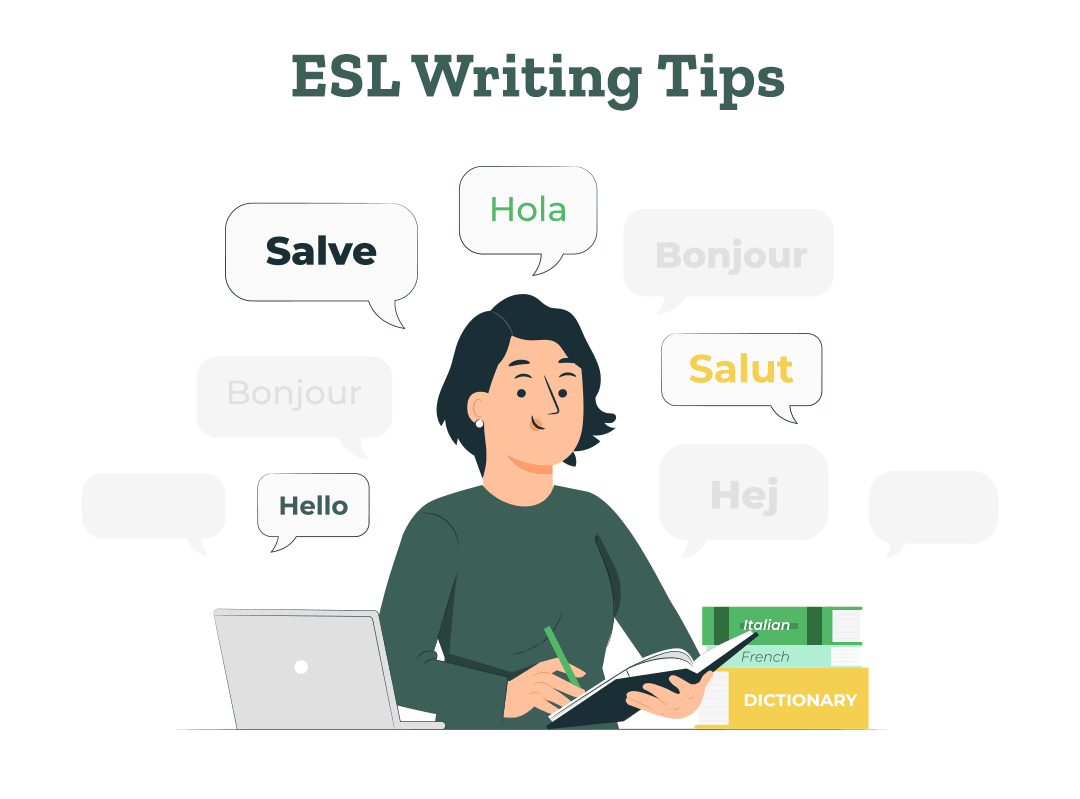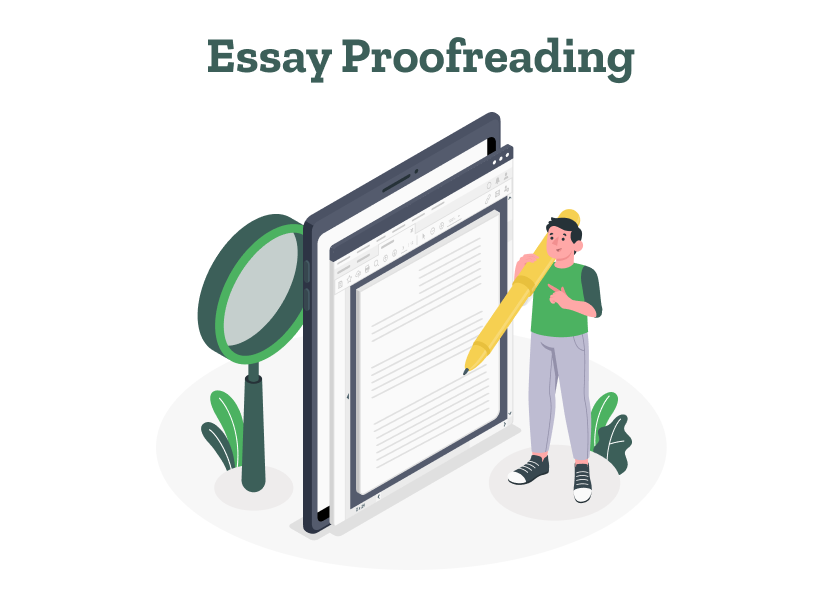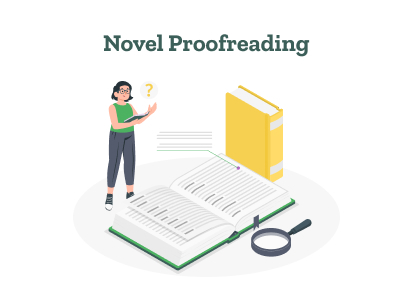- What is Predatory Publishing?
- Tips to Self-Edit Your Dissertation
- Guide to Essay Editing: Methods, Tips, & Examples
- Journal Article Proofreading: Process, Cost, & Checklist
- The A–Z of Dissertation Editing: Standard Rates & Involved Steps
- Research Paper Editing | Guide to a Perfect Research Paper
- Dissertation Proofreading | Definition & Standard Rates
- Thesis Proofreading | Definition, Importance & Standard Pricing
- Research Paper Proofreading | Definition, Significance & Standard Rates
- Essay Proofreading | Options, Cost & Checklist
- Top 10 Essay Editing Services of 2023
- Difference Between Paper Editing and Peer Review
- What is Predatory Publishing?
- What are the different types of peer review?
- How to deal with rejection from a journal?
- Editing and Proofreading Academic Papers: A Short Guide
- Primary and Secondary Sources
- How to Carry Out Secondary Research
- The Results Section of a Dissertation
- Checklist: Is my Article Ready for Submitting to Journals?
- Types of Research Articles to Boost Your Research Profile
- The Top 5 Dos & Don’ts of Academic Writing | Useful Examples
- 8 Types of Peer Review Processes You Should Know
- The Ethics of Academic Research
- How to Create In-Text Citations and Reference Page in APA 7
- MLA 9th Edition Paper Format Guidelines
- How To Craft Winning Admission Essays
- How does LaTeX based proofreading work?
- How to Improve Your Scientific Writing: A Short Guide
- Chicago Title, Cover Page & Body | Paper Format Guidelines
- How to Write a Thesis Statement: Examples & Tips
- Chicago Style Citation: Quick Guide & Examples
- Top 10 Dissertation Editing Services of 2023
- How to Format a College Essay: Format Template & Tips
- Research Paper Outline: Templates & Examples
- APA Header, Cover Page & Body – Paper Format Guidelines
- The A-Z Of Publishing Your Article in A Journal
- What is Journal Article Editing? 3 Reasons You Need It
- 5 Powerful Personal Statement Examples (Template Included)
- How to Write a Lab Report: Examples from Academic Editors
- Formatting Tips on MS Word for Dissertations
- Plagiarism: How to avoid it in your thesis?
- Final Submission Checklist | Dissertation & Thesis
- The Ethics of Academic Research
- 7 Useful MS Word formatting tips for dissertation writing
- How to Write a MEAL Paragraph: Writing Plan Explained in Detail
- How does LaTeX based proofreading work?
- Top 10 Free Citation Generators in 2023 | Quick & Easy
- Citing References: APA, MLA, and Chicago
- Why is it Important to Cite Your Sources?
- How to Cite Sources in the MLA Format
- How to Create In-Text Citations and Reference Page in APA 7
- MLA Citation Examples: Cite Essays, Websites, Movies & More
- APA Citation Examples: The Bible, TED Talk, PPT & More
- MLA 9th Edition Paper Format Guidelines
- Chicago Title, Cover Page & Body | Paper Format Guidelines
- Chicago Style Citation: Quick Guide & Examples
- 10 Best Free Plagiarism Checkers of 2023 [100% Free Tools]
- APA Header, Cover Page & Body – Paper Format Guidelines
- Top 10 Free Citation Generators in 2023 | Quick & Easy
- Citations and References: What Are They and Why They Matter
- Writing a Dissertation Proposal
- Top 10 Best Academic Research Resources
- Formatting Tips on MS Word for Dissertations
- How to Prepare for Your Dissertation Defense
- The Acknowledgments Section of a Dissertation
- Abstract: An Introduction
- The Table of Contents Page of a Dissertation
- The Introduction Chapter of a Dissertation
- The Literature Review of a Dissertation
- How to Choose a Topic for Your Dissertation
- Tips to Self-Edit Your Dissertation
- The Results Section of a Dissertation
- Plagiarism: How to avoid it in your thesis?
- Final Submission Checklist | Dissertation & Thesis
- The Only Dissertation Toolkit You’ll Ever Need!
- The Ethics of Academic Research
- 7 Useful MS Word formatting tips for dissertation writing
- 5 Thesis Writing Tips for Master Procrastinators
- How to Write a Dissertation | 5 Tips from Academic Editors
- The Title Page of a Dissertation
- The 5 Things to Look for in a Dissertation Editing Service
- Top 10 Dissertation Editing & Proofreading Services
- Top 10 Dissertation Editing Services of 2023
- Why is it important to add references to your thesis?
- The Research Methodology Section of a Dissertation
- Thesis Editing | Definition, Scope & Standard Rates
- How to Pick the Perfect Essay Topic
- Essential Research Tips for Essay Writing
- How to Write a MEAL Paragraph: Writing Plan Explained in Detail
- How To Craft Winning Admission Essays
- How to Write a Thesis Statement: Examples & Tips
- Top 10 Essay Writing Tools in 2023 | Plan, Write, Get Feedback
- How to Format a College Essay: Format Template & Tips
- How to Write an Impactful Personal Statement (Examples Included)
- What Is a Mind Map? Free Mind Map Templates & Examples
- How to Structure Your Essay
- How to Write an Essay Outline: 5 Examples & Free Template
- How to Write an Essay Header: MLA and APA Essay Headers
- What Is an Essay? Structure, Parts, and Types
- How to Write an Essay in 8 Simple Steps (Examples Included)
- 8 Types of Essays | Quick Summary with Examples
- Expository Essays | Step-by-Step Manual with Examples
- Guide to Essay Editing: Methods, Tips, & Examples
- Narrative Essay | Step-by-Step Guide with Examples
- How to Write an Argumentative Essay (Examples Included)
- Guide to a Perfect Descriptive Essay [Examples & Outline Included]
- How to Start an Essay: 4 Introduction Paragraph Examples
- How to Write a Conclusion for an Essay (Examples Included!)
- Top 10 Essay Editing Services of 2023
Still have questions? Leave a comment

Checklist: Dissertation Proposal
Enter your email id to get the downloadable right in your inbox!

Examples: Edited Papers
Enter your email id to get the downloadable right in your inbox!
How to Pick the Perfect Essay Topic
 Jan 21, 2021
Jan 21, 2021 5
min read
5
min read
Now that you’re familiar with what an essay is and what types of essays there are, we’re here for the next step: how do you pick the perfect essay topic? Here are a few steps you can follow to do just that:
Now, the kind of essay that you’ll be working on will be a combination of what your professor has asked you to do and the nature of the topic itself. But you can open up a world of possible topics in just a few steps!
1: Read the instructions of your assignment carefully.
If you’ve been given an essay assignment, the instructions are likely to have some guidelines or context which will help you arrive at (at least) a broader topic. Contextualize what you’ve learnt in class to the prompt, and start thinking about how you can bridge the two together. Make connections between the prompt and the readings, and try to find topics within the common links.
2: Do some basic research about what you want to write about.
If you’re unfamiliar with the general area of topics given to you, go do some basic research about it. Cross-check it with your textbook or prescribed readings to make sure that the topic you’re choosing is actually relevant to your class. Use this process to gauge whether you’re interested in the topic, and more importantly, if you are equipped enough to write a few thousand words on it.
3: Pick an essay topic that’s neither too broad nor too narrow.
Jot down important points you can elaborate on in the essay. Using this basic research, try to form a basic outline to check if you have substantial points. At this stage, the goal is to be able to have clarity about what you want to achieve from the essay. If you find yourself grasping at too many straws, it’s likely that you’re topic is too broad, and you need to narrow it down to a more specific topic. On the other hand, if you sense that you don’t have enough to say, it’s likely that your topic is far too specific, which means you need to broaden the scope of the essay.
Pick something broad enough for you to work with, but not so narrow that you can’t write enough.
4: Ensure that you have the resources to write the essay you want.
Pick a topic you know you have the resources to write about. This is especially for essays that require you to refer to primary sources, such as published papers and archival content. For example, if you want to do a film analysis of a relatively less known silent film, make sure you’re in a position to actually access a copy of that film.
5: Consult peers or professors.
If you’re still uncertain about the topic you’ve arrived at, or just have so many that’s it’s impossible to decide, talk to a classmate or even your professor to get a second opinion. Not only will they have a fresher perspective, but they will also give you insights about how they perceive its relevance in the class.










